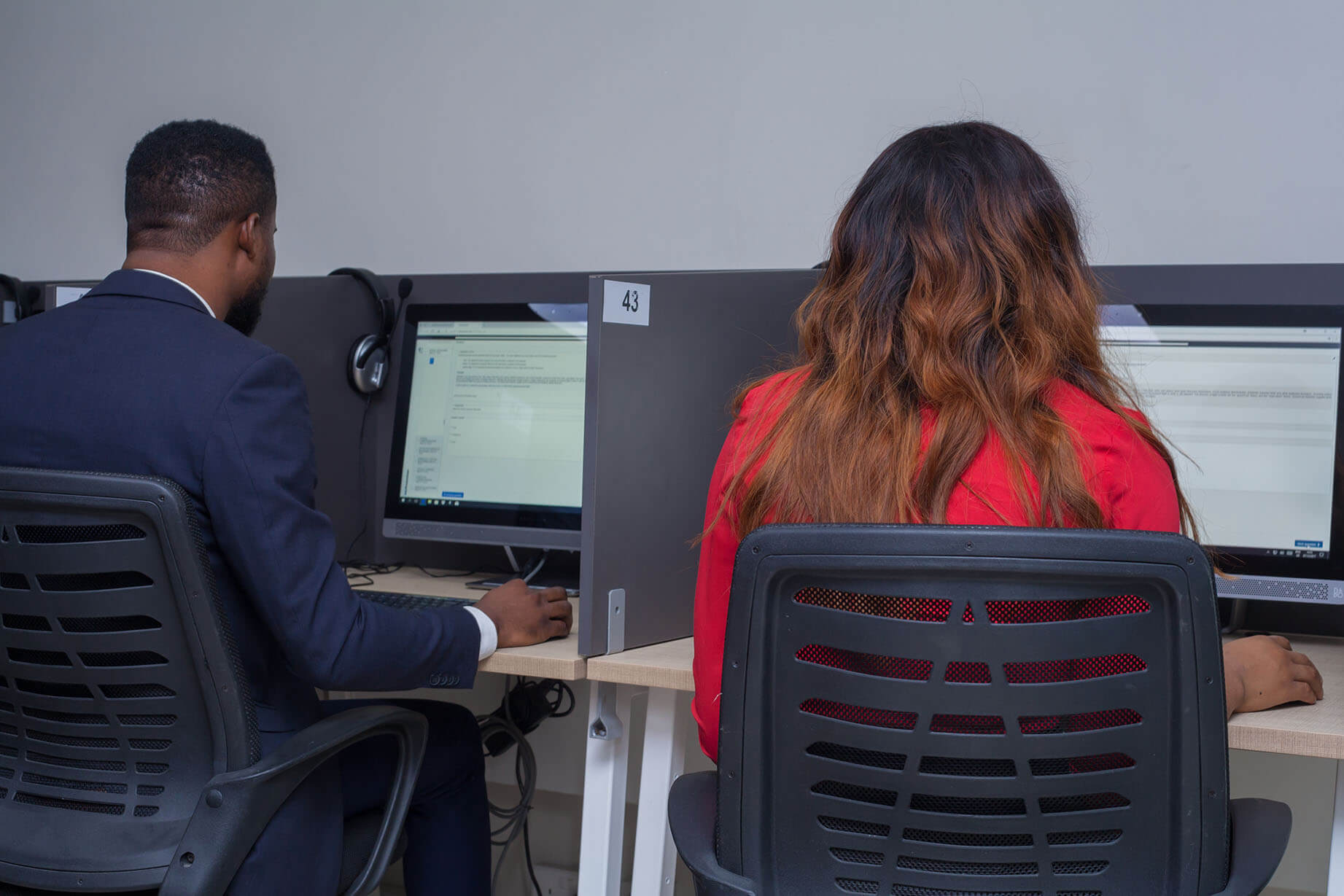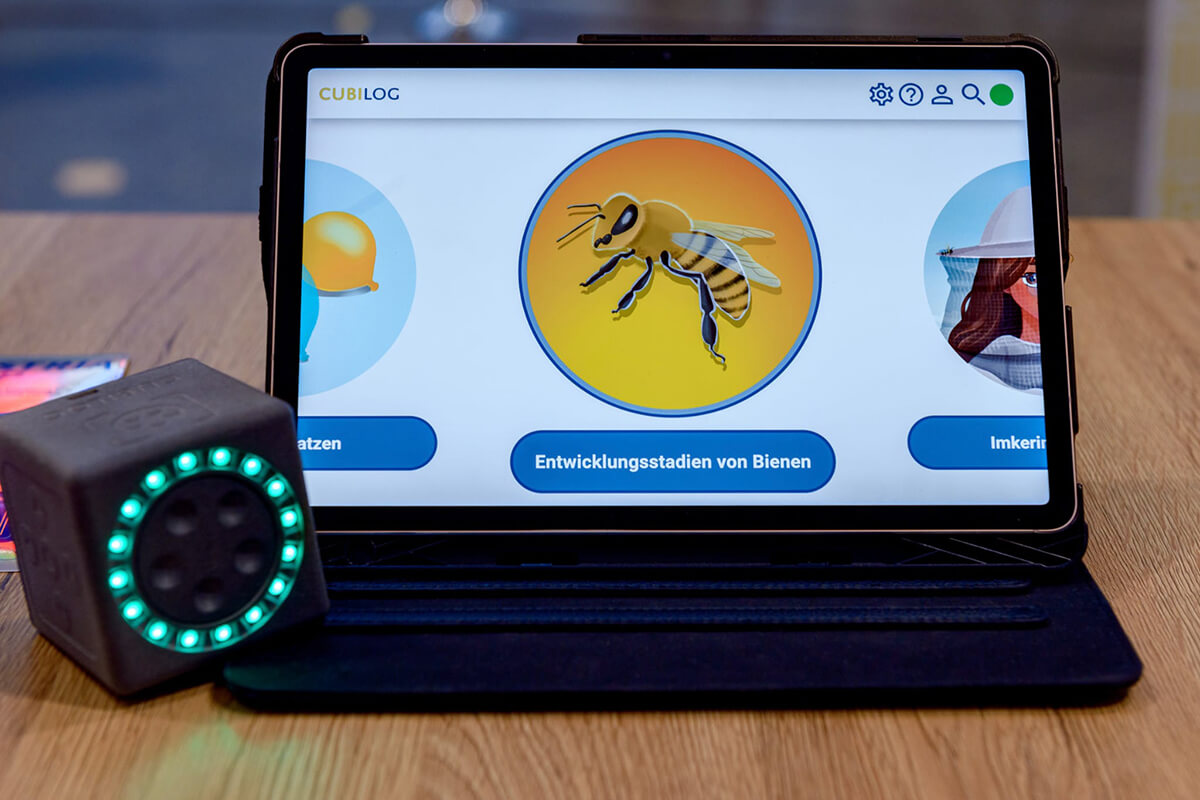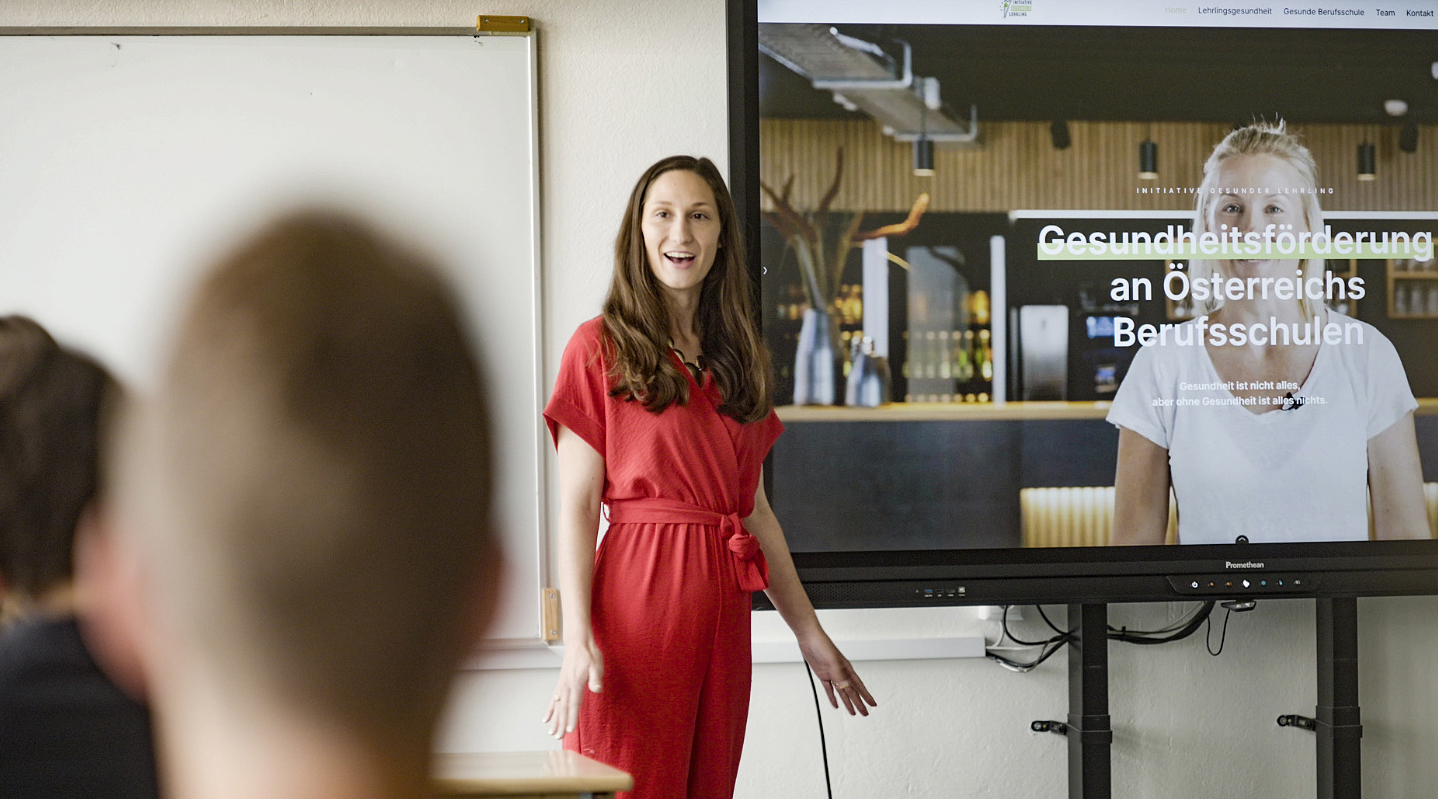BizExaminer and the complex business of digital exams
“Reliability and performance” – that sounds like a new car at first. In fact, however, these were the two most important parameters in the development of bizExaminer. The digital examination software was born out of a specific problem. Well-known users of certification examinations repeatedly encountered problems with their examination software from the USA. It often happened that the internet connection failed, then the programme broke down and the candidates had to re-enter all the exam answers. Or there were even bigger technical problems that could not be fixed quickly enough because of the different time zones. This was not a long-term option and the idea was born to develop an own examination software. One that would not crash or hang even with unstable internet access, server problems or generally stubborn computers – the cornerstone for the foundation of the company bizDevelop and the product bizExaminer.
The classic digital exam
There was a lot to include, because the requirements for digital examination technology vary greatly: Should they be taken from home or in a test centre? As open questions or in multiple choice style? Should the software be integrated into the existing IT landscape? In any case, bizExaminer has succeeded in making the right use possible for all these different customer wishes – with or without technical support from bizDevelop’s experts. The “classic” and simplest variant is often found in certification and professional qualification examinations, for example in theoretical driving licence tests. The examiners compile a pool of questions and topics that are valid for several years and therefore do not have to write new content for each exam. The questions and answer options are compiled automatically. The participants come to an on-site test centre and get right into the exam on a computer. “We often mention the driving test when we want to explain digital exams in general,” says Bernhard Waglechner, one of the founders and managing directors of bizDevelop.

The role play in operation
Things get a bit more complicated when the examination software is integrated into learning management systems and the existing IT infrastructure at colleges or universities. On the one hand, this is because the examination material is always different for each date. On the other hand, e-learning is increasingly in demand in this area. Students can test their level of knowledge with quizzes, for example, and receive more feedback, for example in the case of wrong answers. In addition, in the field of education, criteria must be observed when granting rights of use – often one’s own examination material should not be visible to other professors. Examiners can therefore take on different user roles in the administration of the software: As an author, whereby they can create exam content and restrict access to it, or with limited rights as a date admin for the pure creation of exam dates. Exam candidates then receive a link to the exam when they take it from home or take it on site.
The perfect fit for remote monitoring
This is one of the crucial questions – where should the online exam actually take place? A hot topic is remote monitoring, i.e. making sure that there is no cheating. Although bizDevelop does not have its own technical systems for this, the IT experts work together with external providers and can give their customers competent advice. Especially during the first Covid-related lockdowns, good advice was in demand: “Most of the enquiries we received during the distance learning by Corona were about remote monitoring. These were unprepared calls for help, precisely because you can’t set up such a delicate issue from one day to the next,” says Bernhard. After all, before the pandemic, most written digital exams were conducted on site in test centres or computer rooms, not in the candidates’ bedrooms. So the question of surveillance did not arise, at least not to this extent.
In the case of remote monitoring, there is the purely technical level of how to transmit the examinee’s computer desktop or whether the external camera is working, filming in real time as the examinee takes the exam. Furthermore, identity verification is an important element, as is the onboarding of the examinees and the organisation of the monitoring – an additional effort to the actual online examination. Those universities and companies that had ventured into digital examinations from home during the first wave of the pandemic mostly relied on a mixture of open task types, so-called “open book” examinations with predefined submission times. Multiple choice knowledge tests were also increasingly used here, which had to be completed in the shortest possible time. “This was enough for many universities as a competence check during the Corona period,” says Bernhard. In the summer of 2020, most universities then allowed students to take face-to-face exams again under strict hygiene measures.
When thousands compete at the same time
In exams, there is another important component besides stability in case of technical problems – the workload. In entrance exams or large university exams, it is not uncommon for thousands of students to take an exam at the same time. “We can only serve such customers because we optimise everything ourselves – right down to the server infrastructure,” says Bernhard. This is the basis on which crash-proof and smooth examination software runs. An important point for bizDevelop’s business model. “This also makes us independent of the big industry players. Because if start-ups, for example, run their product on a server of the big IT corporations, the costs incurred there also increase with success.” Fortunately, these remain manageable for the bizExaminer examination system. Depending on the application, there are different models. Like pay-per-use – i.e. per exam taken or pre-pay, where a contingent is purchased; for universities there is also the per student:in model. “We find the right model for all requests,” says Bernhard.

Nachgefragt bei Bernhard Waglechner:
In your opinion, what would a legally correct remote monitoring look like?
I am not a legal expert myself and I see that there are currently different views of “legally correct remote monitoring” in Austria. If the exams are not open book exams – with a longer submission period – I think a camera is a must in order to at least be able to establish identity. Any webcam built into a PC is sufficient for this and does not necessarily have to be provided by the university. But we must not forget the issue of equal opportunities. People with disabilities must also have the same opportunities.
You took part in the EdTech Austria event on the dos and don’ts of remote monitoring. Were you able to take anything away with you here?
From service providers, student representatives, users to “non-users”, the whole spectrum was represented. This gave us a very good overview of where Austria stands on this topic and where there is still a need to catch up. In addition, the event showed that legal issues such as data protection and service law or the different university and university of applied sciences laws need to be considered or looked at more closely with regard to remote monitoring.
If some obstacles arise here, will we go back to face-to-face exams in the future?
I wouldn’t see it that way. Especially in the area of universities of applied sciences in Austria there is a competitive situation and offering remote exams can increase the attractiveness factor of a school for students. The universities that have successfully managed to switch to distance learning and distance exams have expanded their market. Students from abroad can be served with this, virtually doing distance learning. You can see this at elite universities in the USA, which have relied heavily on distance learning in the course of digitalisation. I think this trend will continue.
Do you also want to be more internationally represented?
We are already represented in several neighbouring Austrian countries and occasionally outside the EU. Our user interface is available in German, English, Spanish and French, and the exam content can be created in any language. This means that there are no limits to what we can do. Our product is absolutely competitive internationally. We notice this in the fact that more than half of our customers previously used the products of other industry leaders and are now much more satisfied after switching.
More articles
The following articles might also interest you.

EdTech Austria Fellowship
24. October 2024

Lifelong Learning in Transition: Opportunities and Challenges of AI
17. January 2025

Motor and digital: Cubilog reimagines language development
16. December 2024

“Healthy Apprentice”: Health Literacy for Vocational Schools
28. November 2024

Good Days, Bad Days: “Upstrive” Captures Mental Health
15. November 2024
